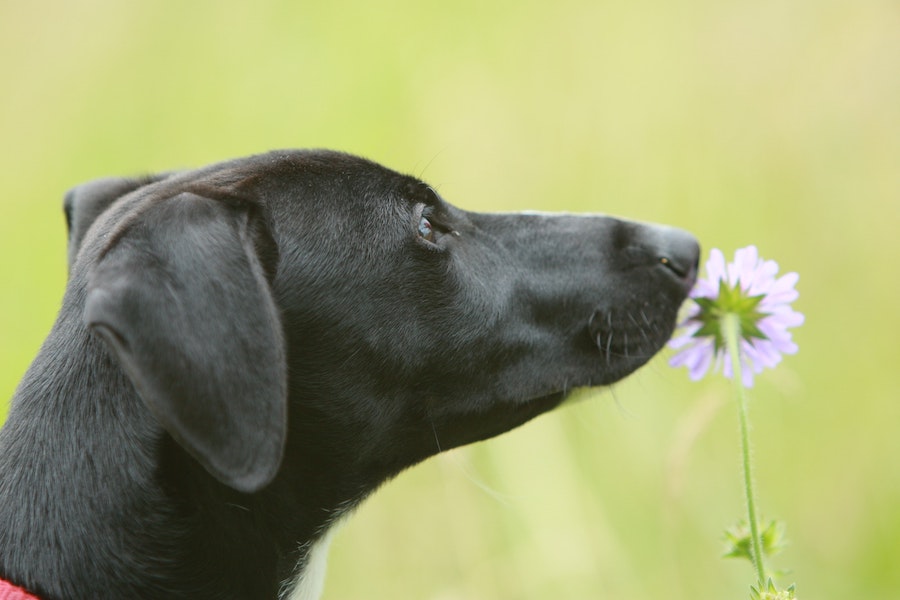Could your garden poison your pets? Here’s how to create a pet-friendly plot
Are you concerned your garden might be a hazard to your pets?
Pets can be a challenge for keen gardeners, especially when it comes to safety, and as the weather warms up and your animals start spending more time in the garden, they may chew on plants or try to explore areas you thought were out of bounds.

Be cautious with planting
Caroline Reay, senior vet at national pet charity Blue Cross (bluecross.org.uk), says: “It’s important for owners to be aware some plants are not as harmless as they seem, but we want people to enjoy their garden.
“With a bit of planning, you can create a beautiful and safe garden for everyone to enjoy, including your pets, all year round.”
What’s poisonous?

Lilies are toxic to cats
Lilies – the leaves, flowers and pollen – are highly poisonous to cats, even in minuscule quantities, and have the potential to be fatal.
Most crocuses are a good alternative for spring colour to daffodils, which are toxic, but avoid colchicums or autumn crocuses, which can also be poisonous. Bluebells can be too, but severe poisoning is rare.
Other plants which are toxic to cats and dogs include tulips, daffodil bulbs, foxgloves, hyacinth, ivy, azalea, cyclamen root and buttercups.

Tulip bulbs can be poisonous to pets
Cats should avoid iris, yucca, leeks, tomatoes and potatoes, while dogs can have an adverse reaction to bluebells, lupins, yew, rhododendron, wild cherry tree and the stems of sweet peas.
Safer choices
Many herbs, including rosemary, parsley, lavender, thyme and sage are good, safe choices.
Other safe plants for your cat and dog include African daisy, calendula, nasturtium, Boston fern, rose, camellia, gerber daisy, pampas grass, marigold, petunia, spider plant, star jasmine, sunflower, viola, snap dragon and zinnia.
Many cats like catnip or catmint, while rosemary and snapdragons provide stimulation if you have a dog.
Potential hazards
Fences and gates must be secure so dogs can’t escape. Six foot is a good height for most.

Avoid slug pellets
Slugs and snails can infect pets with lungworm, but avoid slug pellets which can be toxic. Stick to using barriers like soot, sharp sand or beer traps and ask your vet pet about lungworm protection.
Be cautious with fertiliser
Lawn feed and moss killer may irritate your pet’s paws and can cause gastrointestinal upsets, so keep your pets away from any area you treat.
Lock sheds

Keep your shed locked
Keep shed doors firmly shut and greenhouse entrances/exits blocked with mesh. It’ll prevent explorers from becoming trapped or getting into trouble with dangerous substances or sharp tools kept inside, or succumbing to heatstroke.
Avoid chemical weed killers and pesticides too, as they can be harmful to pets (and wildlife).
Make the garden fun

Dogs like tunnels to run through
Provide logs to scratch and climb on, and tunnels for your pet to go through.
Cats like to sit up high and observe the goings on below. If you don’t have any trees, consider placing platforms and scratching posts around your garden.
The Press Association
Latest posts by The Press Association (see all)
- The best ways to boost your immune system as cold temperatures hit - January 5, 2025
- The Osmonds star and ‘beloved husband and father’ Wayne Osmond dies aged 73 - January 2, 2025
- What screenings are available on the NHS to detect cancer early? - January 2, 2025
- Help your grandchildren make the most of Big Schools’ Birdwatch - January 1, 2025
- Veteran radio star Johnnie Walker dies aged 79 - December 31, 2024




















